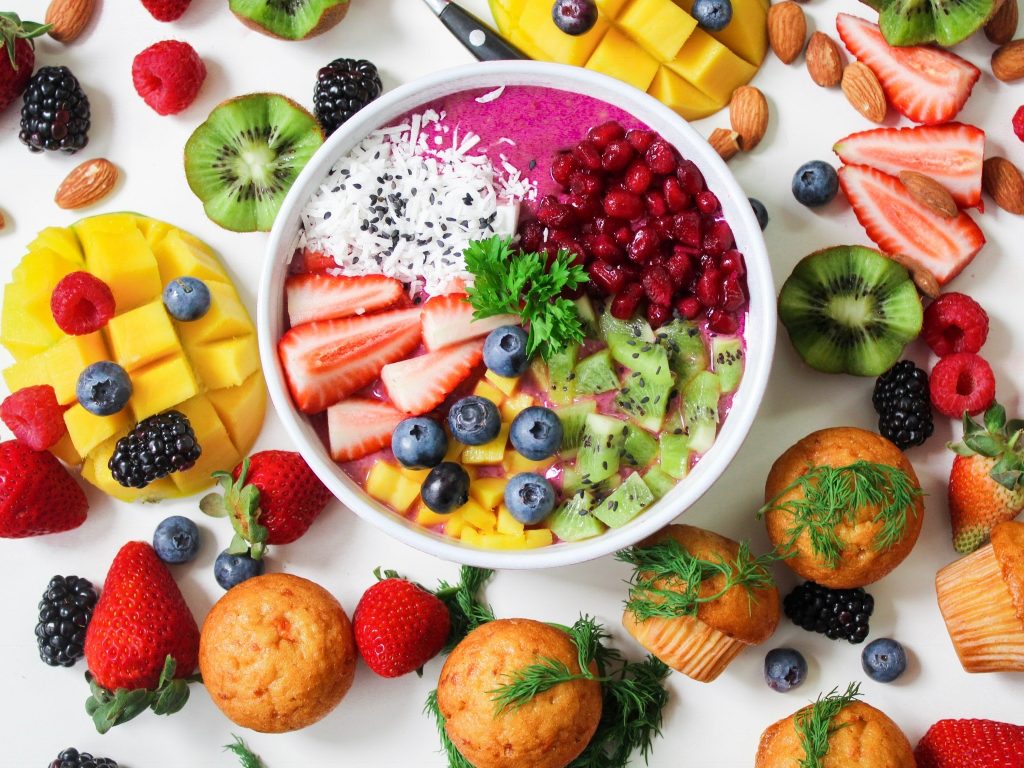The human body is incredible, especially its healing abilities. We don’t always give it the respect it deserves because we have been too exposed to situations in movies or books where people can self-heal completely at some absurd speed. When the immune system is being attacked, one of our self-defense mechanism is inflammation, a process in which the body heals itself. The “good” inflammation is the acute inflammation you experience when twisting your ankle, having a cold, or allergies. The inflammation usually goes away after lots of rest, hydration, and maybe medicine. The “bad” inflammation is chronic inflammation because your body is under constant stress and being overworked to heal your body. Chronic inflammation can put you at risk for developing diabetes, heart disease, stroke, liver problems, cancer, dementia, and autoimmune diseases. Prolonged exposure to irritants or toxins can cause a number of health problems. Examples of chronic inflammation may be bloating, aching joints, and persistent fatigue. There are many ways you can adjust in your life to fight inflammation or prevent it.
What You Can Do
Know Your Medical History: The first step towards preventative measures or fighting inflammation is to understand your family history. If there is a history of diseases like diabetes, heart disease, and/or stroke, all signs of chronic inflammation, consult with your health care provider on how you should proceed.
Exercise: Regardless of where you may be at in your fitness journey, a little exercise never hurt anyone. Physical activities keep your body healthy, providing boosts of energy throughout your day. Exercise doesn’t have to be intense like HIIT, it can be a walk or a light jog in the mornings or evenings. You will best reap the benefits by exercising three to four times a week for 30 to 40 minutes at a time. Even a short walk during your lunch break can be beneficial!
Limit Your Exposure to Harmful Chemicals: Your house dust contains many toxic chemicals. Simply doing the housekeeping basics of regular vacuuming and dusting will be a huge benefit for you in the long run. Wash your hands thoroughly and frequently (avoid using antibacterial soap and hand sanitizers) since you never know what your hands have come in contact with… In addition, avoid purchasing products that are artificially scented because they often contain chemicals linked to causing cancer. Any time your body comes in contact with toxins, it will naturally attempt to filter them out. Prolonged exposure to toxic chemicals will increase your risk of chronic inflammation.
Manage Your Stress: Chronic stress can contribute to inflammation. If you’re a millennial like me, you probably experience a lot of stress on a daily basis. However, regardless of your age, if you experience chronic stress from work and/or your personal life, it is imperative you learn how to take care of yourself. Not only can you reduce your risk of potential health problems, but you will also be a lot happier. Trust, I would know.
Drink Water: Drink lots and lots of it. Daily hydration helps your body flush out toxins, aiding it to fight chronic inflammation. I love water, but not everyone likes how bland it may be. You can try adding slices of lemon into your water or drinking beverages that are mostly water such as tea and coconut water. Water is still best, though. Drink at least eight cups (8 oz each) of water each day. It’ll help fight inflammation resulting in clearer skin and more energy on a day-to-day basis.
Eat Healthily

Eating healthy is one of the best ways to fight inflammation. Below, I have listed some of my favorite top anti-inflammatory foods. I personally enjoy these foods on a daily basis whenever possible. I’ve also listed foods that you should probably avoid if you don’t want to suffer from inflammation.
- Avocados (I’m from California so of course, I LOVE avocados): These yummy fruits are delicious in any three meals of the day, and they contain beneficial compounds like carotenoids and tocopherols that fight inflammation and reduce your risk of cancer. They are a great breakfast food too, filled with potassium, magnesium, fiber, and monounsaturated fats. Sometimes, I like eating my plain, but you can try making an avocado toast!
- Blueberries: If you can, go for organic blueberries that are pesticide-free. Blueberries are a great snack and contain the antioxidant, anthocyanin, which has antibacterial and anti-inflammatory properties. If you’re ever in Boston, definitely check out if you can go blueberry picking!
- Broccoli: Studies provide evidence that consuming cruciferous vegetables decreases the risks of heart disease and cancer. Broccoli is a cruciferous vegetable and its rich in sulforaphane, an antioxidant that also fights inflammation.
- Chia Seeds: Chia seeds are a great source of plant-based omega-3 fatty acids which can help alleviate inflammation. They can be easily incorporated into your diet as an ingredient in an anti-inflammatory smoothie along with blueberries and leafy greens!
- Dark Chocolate: Cocoa contains flavanols that are anti-inflammatory. Opt for dark chocolate that contains at least 70% cocoa in order for you to reap its anti-inflammatory benefits.
- Ginger: Ginger contains gingerol, which has powerful anti-inflammatory and antioxidant effects. Ginger is often used to help treat nausea, reduce muscle pain, lower blood sugars, and soothe chronic indigestion. Whenever I have a sore throat, I love a good hot cup of honey ginger tea.
- Salmon: Like chia seeds, salmon is also rich in omega-3 fatty acids. To minimize exposure to mercury, go for wild-caught Alaskan salmon.
- Tomatoes: Not only do they contain lycopene, an antioxidant with anti-inflammatory properties, but they are also packed with vitamin C and potassium.
- Turmeric: Curcumin is the anti-inflammatory nutrient found in turmeric, rendering turmeric aids in the reduction of inflammation related to arthritis and diabetes.
- Bell Peppers and Chili Peppers: Both peppers contain lots of Vitamin C and antioxidants. The antioxidant found in bell peppers is quercetin which helps people who suffer from sarcoidosis, an inflammatory disease. Chili peppers contain sinapic acid and ferulic acid, both of which reduce inflammation.
Inflammatory Foods to Avoid

- Processed Meats: sausages, bacon, beef jerky, hamburger [atties
- Refined Sugars & Artificial Sweeteners: soda, sugary drinks, Splenda®
- Refined Grains & Gluten: white/whole wheat bread, most packaged snacks
- Anything Deep Fried or High in Fat: french fries, fried chicken
